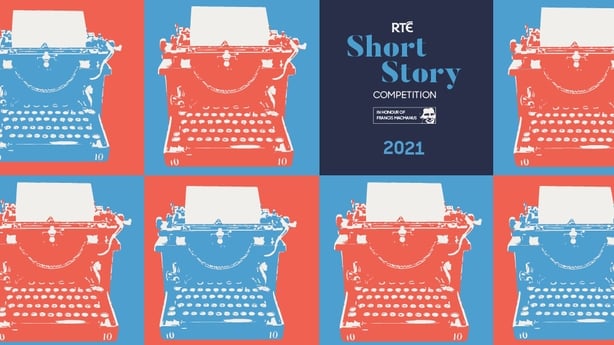Thinking of entering the RTÉ Short Story Competition 2021? Writer Lucy Caldwell, one of this year's judges, has some advice...
Once upon a time and a very good time it was there was a moocow coming down along the road and this moocow that was coming down along the road met a nicens little boy named baby tuckoo…
Before we can read, before we can write, before – these days – we can hold a screen in chubby fingers and watch Hey Duggee, we listen to stories. I can still remember the feeling of the brown velour sofa under my cheek, as I cuddled up with my sisters to listen to our mum reading. I remember tunnelling behind the sofa myself, and pretending to be a radio, reciting from the fortnightly Storyteller magazine whose cassette tapes I listened to until I knew the stories by heart. Tullycarnet Library, where the librarian with the beautiful wild red hair would sit us in a semi-circle between the stacks of books and read, dramatically, to all of us rapt. The end of a primary school day, heads laying on desks for storytime…
I don't think it ever leaves us, the power of that feeling of being read to.
Often, during the last year, with nothing else to do, nowhere to go, I’ve curled up in bed with my children for hours, reading book after book. My six-year-old never even minds if we’re reading his younger sister’s books, his old baby books. Just being read to is enough.

This is your greatest strength as a writer for radio. You don’t have to do anything to earn that relationship with your listener: they are right there, you have them already: you have, from the moment you begin, that particular, priceless intimacy of being that voice in their ear. Radio reaches us in our cars, in our homes, in our beds, and at times when our guard is down – we have the radio on for company, for comfort, or we put in our earbuds to retreat from the rest of the world into a more private space for a while.
I don't think it ever leaves us, the power of that feeling of being read to.
I think often of what Beckett knew: that all readers are listeners first, and maybe foremost. Don’t look, he has Mercier say, to which Camier adds, The sound is enough. Elsewhere, in private correspondence, he writes, It depends on the whole thing’s coming out of the dark. I love that phrase. When you’re writing for radio, despite sound being all you’ve got, or maybe because of it, your listener’s other senses are heightened. Radio is not just the most intimate, but the most evocative of our ways of storytelling. It can also be the most dramatic. When you read a story on the page, you as the reader are in control of pace. You can read fast, you can skim-read, you can skip ahead to see how something ends, if the tension is too much – or not enough. When you listen to a story, however, the writer retains control of all these things. Think of how you can elongate a moment, spiral off into alternative futures, build tension to an unbearable pitch, before letting the listener off the hook – or not.
We need your consent to load this rte-player contentWe use rte-player to manage extra content that can set cookies on your device and collect data about your activity. Please review their details and accept them to load the content.Manage Preferences
Listen: RTÉ Short Story Competition - judges Declan Hughes and Lisa McInerney give tips and advice for entrants, via RTÉ Arena
I think of what Dylan Thomas knew, and Louis MacNeice, of the ways in which radio is a haunted medium. Internal monologues, unseen ghostly voices, slippages and overlayings of time, secrets, memory, nostalgia, regrets. Longings: the way the vibrations of a voice on the airwaves will go on for ever and ever, through time, into boundless space…
When you’re writing your story for the RTÉ Short Story Competition, you are writing for the listener, even more than for the reader. I still think it’s a kind of magic, that a stranger’s voice can travel over that mysterious thing called airwaves, and reach us, enter us, disarm or distract or maybe even change us. These are your superpowers. Use them wisely – use them well. I can’t wait to hear your stories.
Lucy Caldwell's short story collection, Intimacies, will be published by Faber in May 2021. Along with Declan Hughes and Lisa McInerney, she will judge the RTÉ Short Story Competition 2021 in honour of Francis MacManus, which is now open for entries. To enter, see rte.ie/writing. The closing date is 7 May 2021.
